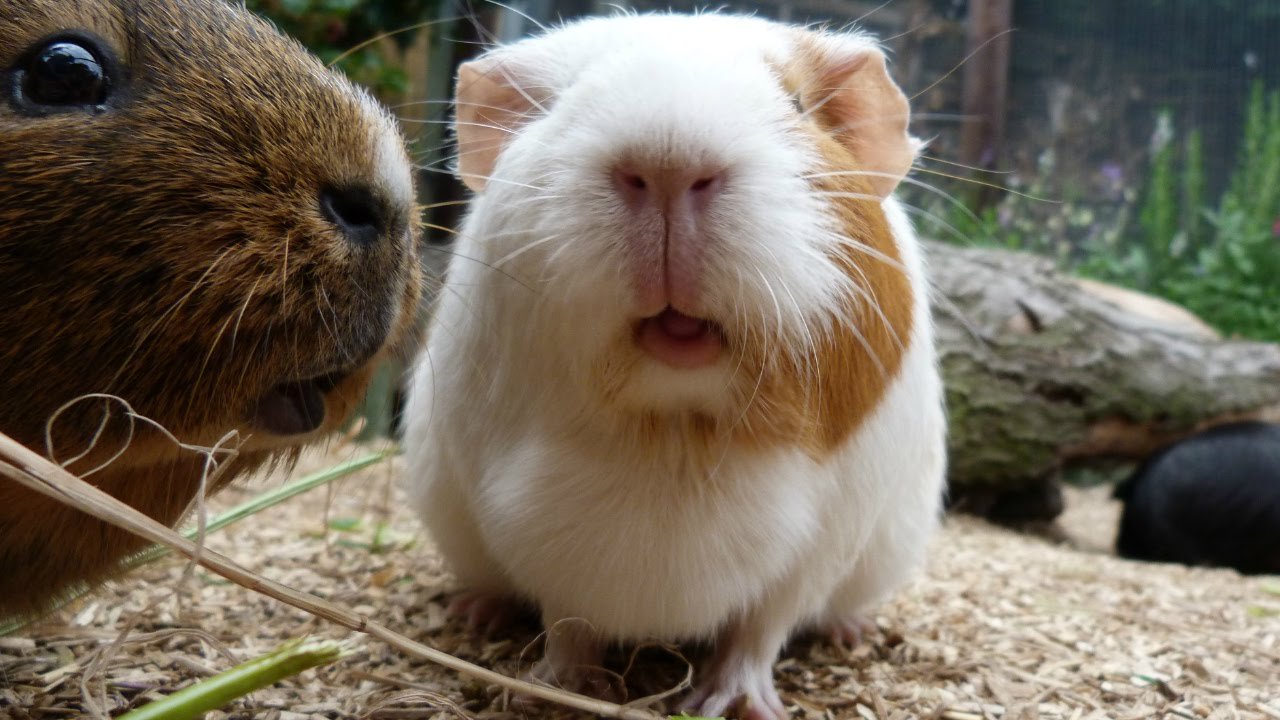Guinea pigs, also known as cavies, are delightful and affectionate small animals that make wonderful pets for families and individuals alike. Known for their gentle nature, social behavior, and distinctive vocalizations, guinea pigs are a popular choice for those seeking a furry companion. This article provides a comprehensive guide to understanding and caring for guinea pigs, from their origins to their dietary needs.
Origin and History
Guinea pigs are native to the Andean region of South America, where they have been domesticated for thousands of years. Historically, they were kept for their meat and were considered a source of food by various indigenous cultures. The name “guinea pig” is somewhat misleading; they are neither pigs nor from Guinea. The term “guinea” may have originated from the mispronunciation of the word “Guiana” or from their historical trade routes.
Physical Characteristics
Guinea pigs are small, robust rodents with a gentle and docile nature. Here are some key physical characteristics:
- Size: Adult guinea pigs typically weigh between 1.5 to 2.5 pounds (700 to 1,200 grams) and measure about 8 to 10 inches (20 to 25 cm) in length.
- Fur: They have a variety of coat types and colors. Common fur types include short-haired (smooth coat) and long-haired varieties. Coat colors can range from solid shades to multi-colored patterns.
- Lifespan: Guinea pigs have a lifespan of approximately 4 to 6 years, although some can live up to 8 years with proper care.
Behavior and Socialization
Guinea pigs are known for their sociable and affectionate behavior. Here are some key aspects of their behavior:
- Social Animals: Guinea pigs are highly social creatures and thrive in pairs or groups. They often groom each other and exhibit behaviors like cuddling and play.
- Vocalizations: They use various vocalizations to communicate, including purring, wheeking (a high-pitched whistle), and chirping. Each sound can convey different emotions, from excitement to distress.
- Exercise Needs: Guinea pigs need regular exercise to stay healthy. Providing a spacious cage with toys, tunnels, and opportunities for exploration is essential.
Housing and Environment
Creating a suitable living environment for your guinea pig is crucial for its well-being:
- Cage: A large cage is essential to accommodate their need for space. Wire cages with a solid bottom are preferable, as they offer good ventilation and are easy to clean. The cage should be equipped with bedding material, such as paper or aspen shavings, to absorb moisture and odors.
- Habitat: Provide hiding places and tunnels for your guinea pig to explore and feel secure. Chew toys and climbing structures can help keep them mentally and physically stimulated.
- Temperature: Guinea pigs are sensitive to extreme temperatures. Keep their environment between 65°F and 75°F (18°C to 24°C) and avoid placing the cage in direct sunlight or drafts.
Diet and Nutrition
A balanced diet is essential for maintaining the health of your guinea pig:
- Hay: Fresh hay, such as timothy or orchard grass, should make up the majority of their diet. Hay provides essential fiber for digestive health.
- Fresh Vegetables: Supplement their diet with fresh vegetables like bell peppers, leafy greens, and carrots. Avoid feeding them iceberg lettuce, as it has little nutritional value.
- Pellets: Provide a high-quality guinea pig pellet mix that contains vitamin C. Guinea pigs cannot produce vitamin C on their own, so it is important to include it in their diet.
- Water: Always provide fresh, clean water. A water bottle with a sipper tube is preferable to a bowl, as it helps keep the water clean.
Health and Grooming
Regular health checks and grooming are important for your guinea pig’s well-being:
- Grooming: Long-haired guinea pigs require regular brushing to prevent matting and tangling. Short-haired varieties need less frequent grooming but still benefit from occasional brushing.
- Veterinary Care: Schedule regular check-ups with a veterinarian experienced in small animals. Monitor for signs of illness, such as changes in appetite, weight loss, or abnormal behavior.
- Dental Care: Guinea pigs’ teeth grow continuously, so providing chew toys is important for dental health. Ensure their teeth are regularly checked to prevent overgrowth.
Bonding and Interaction
Building a strong bond with your guinea pig involves:
- Gentle Handling: Approach your guinea pig calmly and handle them gently. Support their body and avoid sudden movements.
- Interactive Play: Spend time interacting with your guinea pig through play and socialization. This strengthens your bond and provides mental stimulation.
- Training: With patience, guinea pigs can be trained to perform simple tricks or respond to cues. Use positive reinforcement and treats to encourage desired behaviors.
Conclusion
Guinea pigs are charming and loving pets that bring joy and companionship to their owners. By understanding their needs and providing a suitable environment, you can ensure that your guinea pig leads a happy and healthy life. Whether you’re captivated by their adorable squeaks or enjoy their playful antics, guinea pigs make wonderful additions to any household. With proper care and attention, these delightful creatures will reward you with their affectionate and entertaining presence.
